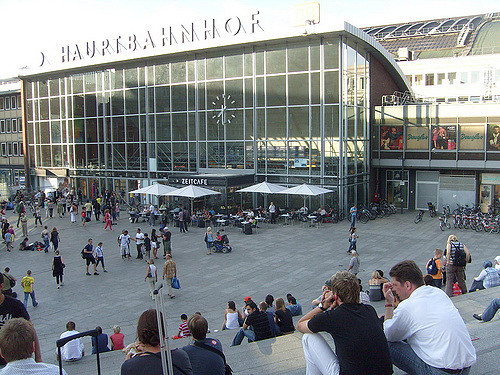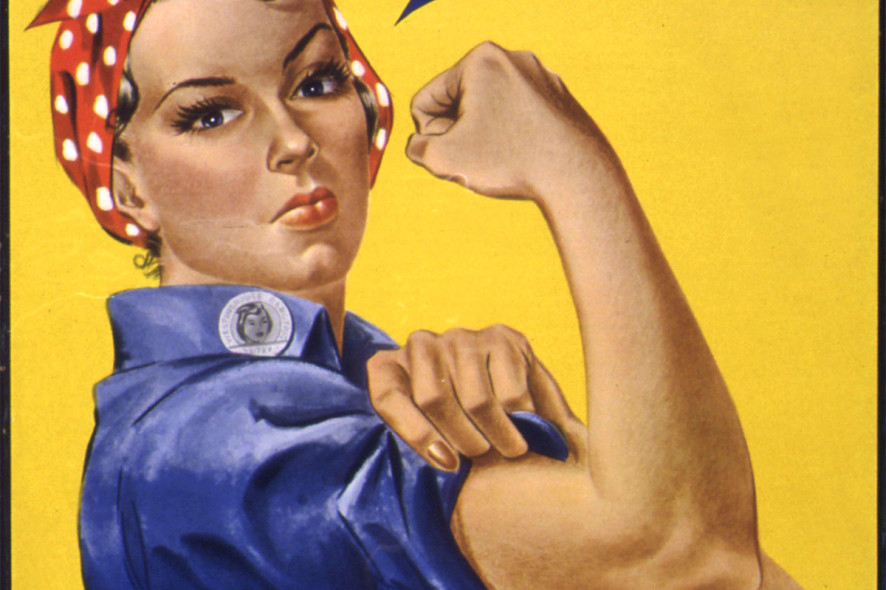by Lorelien Schepers
“They grabbed our arms… pushed our clothes away, and tried to get between our legs or I don’t know where.” (Michelle)
“All of a sudden these men around us began groping us. They touched our behinds and grabbed between our legs. They touched us everywhere.” (Anonymous)
Cornered, robbed, groped and molested. This is what happened to hundreds of women in Cologne on New Year’s Eve. The same story in Hamburg, Frankfurt and Stuttgart, but also in Salzburg, Zürich and Helsinki. The attackers? An estimate of 1,000 men in Cologne, and large groups of men in the other cities. What appears to have been an organized gang effort has now led to more than 650 criminal complaints – just in Cologne – about 50 percent of which involve sexual assault. The first official police report confirmed earlier indications of the perpetrators being “almost exclusively” of North African or Arabic origins. Refugees who entered Germany in the past year were supposed to have been among the perpetrators as well. Suggestions on preventive measures can largely be categorized into two strands: a code of conduct for women versus measures to “educate” immigrants. Are any of these measures worth consideration or are both equally flawed?
The first reaction of Cologne’s Mayor, Henriette Reker, was to suggest a code of conduct for young women and girls. This code would entail women to maintain an arm’s length distance from strangers, to stick within their own group, to ask bystanders for help or to inform the police in case of an assault. Although Reker insists that her reaction has been misinterpreted by the media, politicians and others were quick to support her. Why? Well, apparently women would do well to be aware of the potential dangers of events conducive to drunkenness, and women should know how to prevent assault. This is most probably one of the worst recommendations ever to be uttered by a policymaker.
For the sake of argument, imagine for a second how one should keep an arm’s length distance when using public transport, when doing groceries, at a concert… Just practically speaking, these proposals are unfeasible unless women were to radically change their behaviour and give up their freedom. It is equally naïve to think that women aren’t aware of the potential dangers of life. We live in a society where girls at increasingly younger age are taught to be vigilant around men, not to wear “revealing” clothes to school, to avoid this or that neighbourhood… As for Reker’s reference to drunkenness: alcohol, drugs, or circumstances – genre “she was asking for it”, “she said ‘yes’ first”, “just look at her clothes” – are no excuse for sexual violence and/or assault. There are no extenuating circumstances when it comes to these crimes. Most importantly the mere suggestion of a code of conduct for women is an insult to the victims. It is a case of ‘victim blaming’: it injects the victims with a sense of guilt, suggests that they could have prevented the assault if they had done this, or had not done that. Women were not – in any way – responsible for the appalling behaviour of these men.
Overall, telling the victims to change their behaviour in order to prevent a crime from happening is telling women to ensure that they are not the one who is attacked. Such measures don’t tackle the core of the issue. There is no need for debates on how to avoid rape, but debates to change male attitudes. After all, if ‘no’ is a concept which holds true in most realms of social life, why shouldn’t it for men?
Contrary, many others have taken the stance that men “of other cultures” need education on ‘appropriate behaviour’. Reker suggested some sort of education for people from other cultural backgrounds on how to acceptably behave during street celebrations, such as the upcoming carnival. It is necessary to “prevent confusion about what constitutes happy behaviour and what is utterly separate from openness, especially in sexual behaviour”, she stated. Again, this proposal was met with support, for instance in Belgium where Minister Francken would like to introduce a sexual education course for migrants – inspired by the Norwegian “How to treat women” lessons for migrants.
But exactly how effectively would such courses be? Men who celebrate by cornering women and sexually assaulting them, are not doing so because they are from a different culture. They know this is not an appropriate way to behave, anywhere. No education can change that. It is also being said that immigrants should get acquainted with emancipation, the unquestioned principle of equality between women and men. However with the continuous problems our society still has with sexual violence, gender inequality and the like, it is hypocrite to assume that only migrants need to learn how to treat women. You can’t ‘teach’ immigrants that women are their equals in Western democracies when often Western men don’t consider women equal.
The horrifying mass assaults on New Year’s Eve need neither be a case of victim blaming nor a case against migration. It doesn’t address the original problem and is insulting to the victims, whose case is abused for other causes. If anything, let this not be a call to “keep one’s hands off our women” but to “keep one’s hands off women”.
Image by Thomas Kohler, taken from flickr





